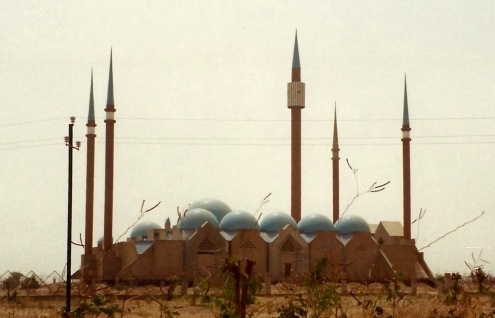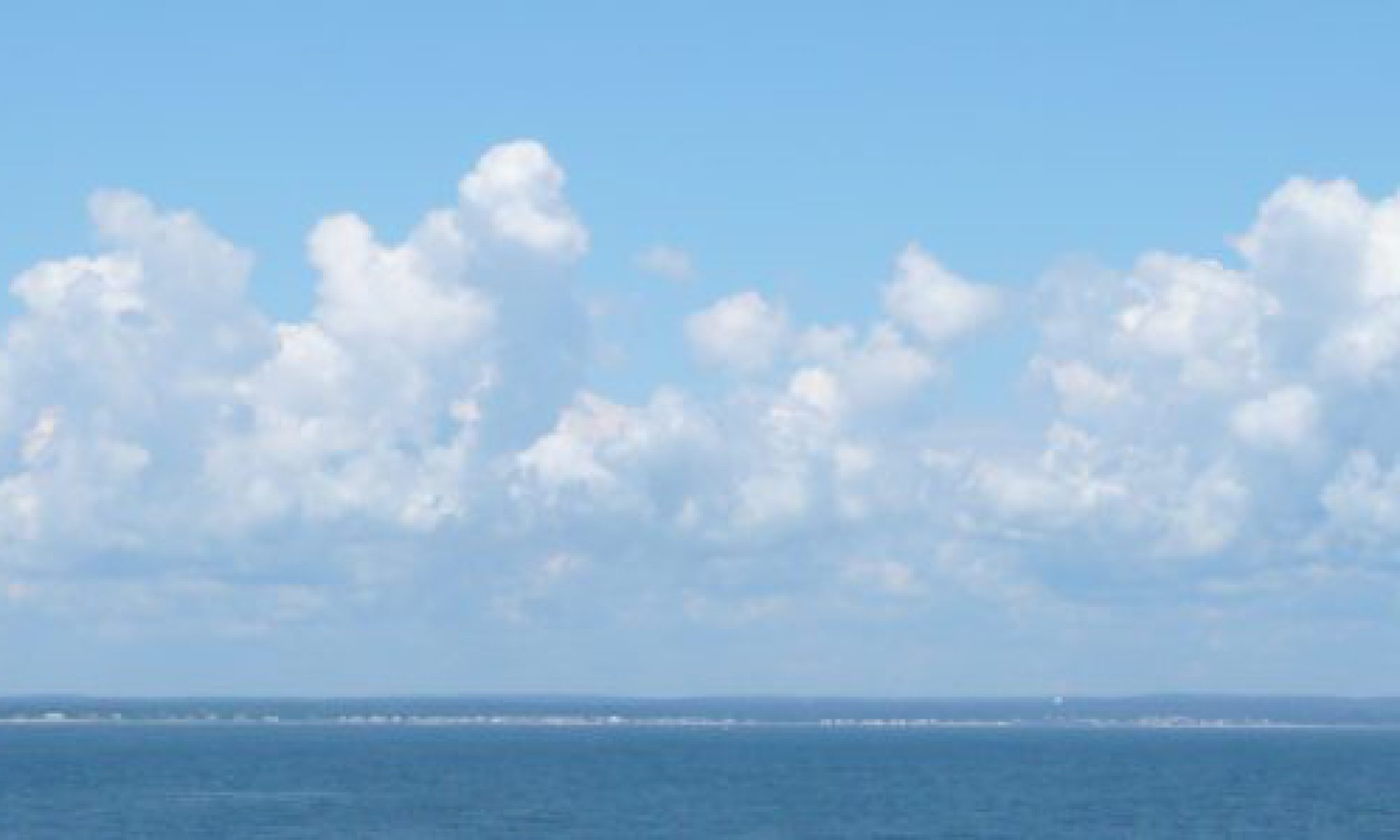
Once again this year, I am honored to be a part of #InterfaithRamadan, the month-long series of daily essays curated by interfaith activist Sarah Ager (@SaritaAgerman). Sarah is an English teacher living in Italy, a preacher’s kid. and a convert to Islam who describes herself as a “postmodern Anglo-Muslim hybrid.” She writes a blog called “A Hotchpotch Hijabi in Italy.” Two years ago, she posted an essay I wrote reflecting on my three-year sojourn in Senegal, a predominantly Sufi Muslim country. This year, partly in response to the toxic Islamophobic rhetoric in American political discourse right now, I wrote a new essay for #InterfaithRamadan, published yesterday, reflecting on why I say Inshallah and Alhamdulillah, and how this relates for me to the Jewish Shehecheyanu prayer. (UPDATE: Sarah’s blog is gone from the internet, but I have recovered and posted this essay below).
My years in Senegal, the first years of my marriage, were formative in multiple ways. Immersion in a joyous, welcoming, progressive, and culturally rich Sufi Muslim culture permanently altered the way I see Islam and the world. As someone who has had the privilege to experience Senegal, I have written from this perspective on my own blog, again and again and again. As someone who grew up in an interfaith family, I see this as part of my role in the world: to build bridges as an interfaith activist, especially when intolerance is on the rise.
Why This Jewish Woman Says Inshallah
I happen to be a Jewish woman who says inshallah. And, Alhamdulillah. Quite a lot. So earlier this year, I was frustrated and depressed when a college student conversing with his father on a cell phone while waiting for takeoff said he would call again when he landed, inshallah, and then he was escorted off the plane when another passenger interpreted this conversation as somehow threatening.
Here in the US, we have seen a terrible rise of Islamophobia in the US since 9/11, and during the insanity of our current Presidential race. And yet, I refuse to abandon my use of these two phrases, which connect me to Arabic, and to Islam, and to three wonderful years spent in a predominantly Muslim country. In fact, I often find myself giving mini-lessons on these phrases (inshallah means God Willing, Alhamdulillah means Praise God or Thank God), and the cultural and religious context of their uses. In this way, I try to contribute to interfaith understanding, while simultaneously reminding myself of various forms of privilege that often allow me to utter these phrases without fearing for my life or liberty when someone overhears me on a plane.
The realization that Allah is simply Arabic for the word God first came to me in high school, when I met Devick, an exchange student from Paris. Devick’s Jewish family had immigrated to France from Morocco, and I noticed he wore a gold pendant with an Arabic inscription. I asked him what it said, and he replied, “Allah.” I was, naively, rather shocked that a Jewish boy would wear this, until he patiently explained, “Allah is God in Arabic. I am Jewish, but Arabic is my first language.” Oh. Right.
Years later, after college and the start of my journalism career, I had the great good fortune to move to Dakar, Senegal, a majority Muslim country. I improved my French and studied Wolof, and worked as a stringer and freelance reporter filing travel and political stories from across West Africa. I got to interview the President of Senegal for Newsweek’s international edition, but I also spent a lot of time just siting under mango trees or in market stalls, drinking tea with Senegalese friends.
After three years of hearing inshallah every time a future event was mentioned, and Alhamdulillah for every past event, throughout the day, every day, in every conversation with a West African, I found these phrases had entered my vocabulary. Though I do not necessarily believe in the kind of God that plans the future or listens to our thanks, it felt right to acknowledge the beliefs of those I conversed with in this way. Here, I know we could insert an entire conversation about cultural appropriation and misguided post-colonial adventuring. But for me, acquiring the habit of using these phrases opened my mind, the mind of a skeptical, hard-bitten journalist trained as a science reporter, to thinking about how acknowledging the uncertainty of the future, and expressing gratitude for the past, can be spiritual practices beyond any theistic belief in a God who intervenes in human affairs.
There is a moment when you utter either of these phrases, a sort of intimacy with the listeners who understand them, a sense of shared spirituality transcending specific religious identities. For me, Inshallah can have a wry and even poignant edge to it, and somehow soothes my anxiety about control. None of us knows what will happen. But whatever happens, we know we will have to figure out how to accept the new realignment of facts and connections and emotions in our new reality.
Alhumdulillah, in contrast, conveys a celebratory catharsis. My daughter just graduated from college, Alhumdulillah! My father recovered from heart surgery, Alhumdulillah! Or even just, I managed to get dinner on the table, Alhumdulillah! For me, the relief embedded in this phrase resonates with the Shehecheyanu, the Jewish prayer of thanks for reaching a season or holiday or moment in the life cycle. I am less interested in whether theologians think we all worship the same God, or whether or not there is a God even listening to us. These exclamations, for me, serve as a reminder of a global and perhaps mystical sense of interconnection. And they also instill a sort of mindfulness, as cues to cultivate wonder, and to strive for peace. Alhamdulillah.
Susan Katz Miller is the author of Being Both: Embracing Two Religions in One Interfaith Family, and The Interfaith Family Journal. She works as an interfaith families consultant, speaker, and coach. Follow her on twitter @SusanKatzMiller.

